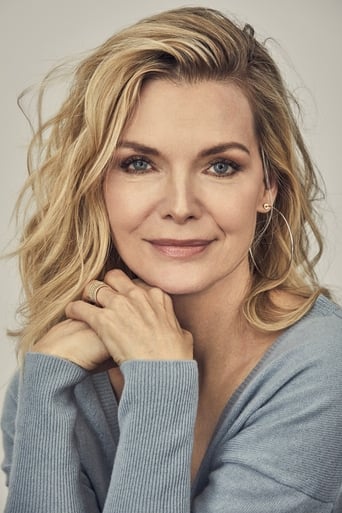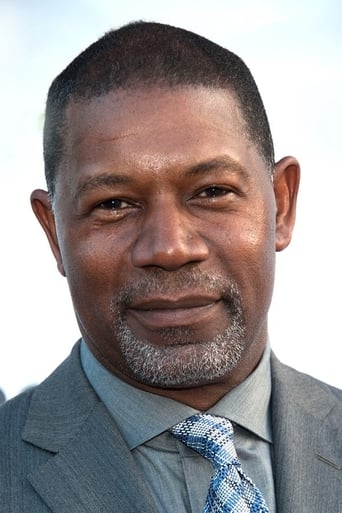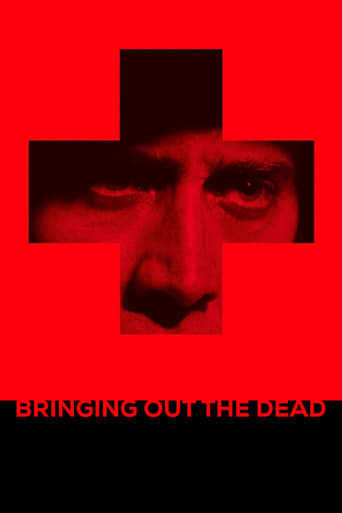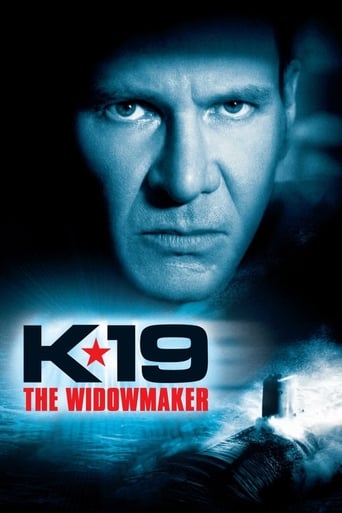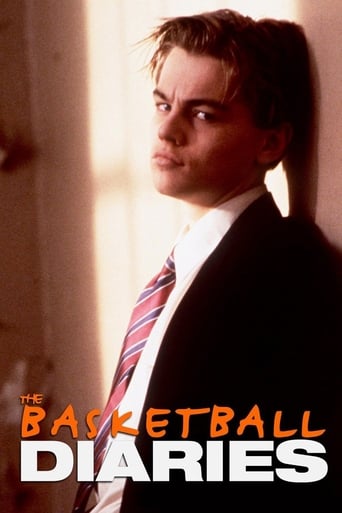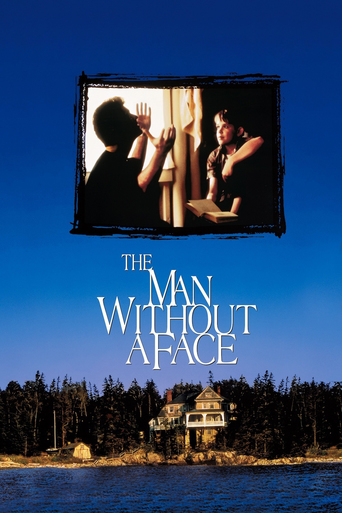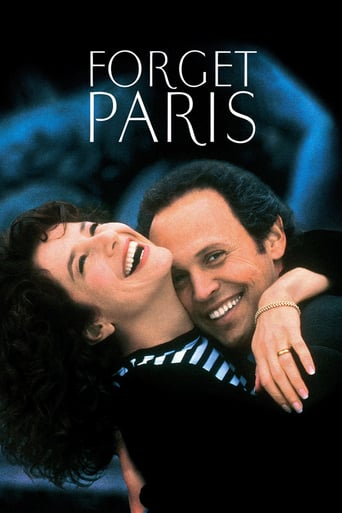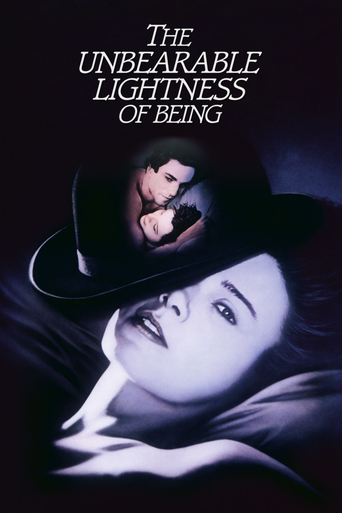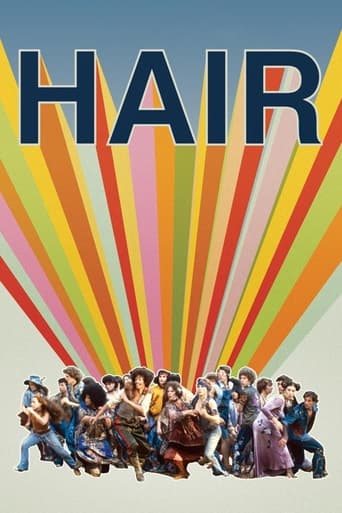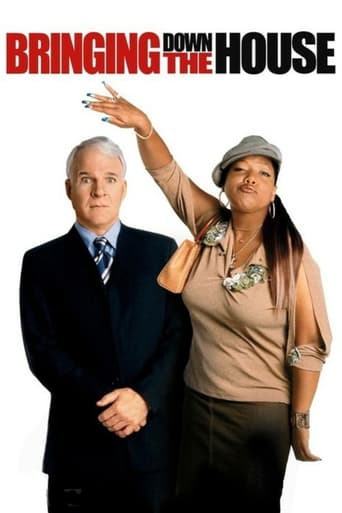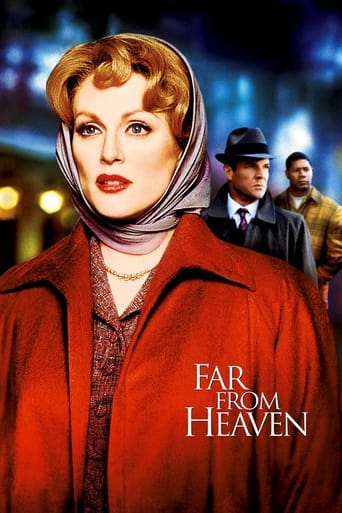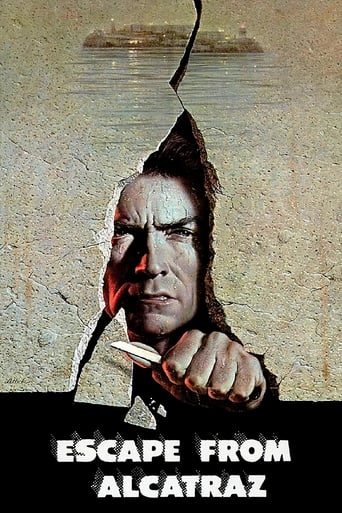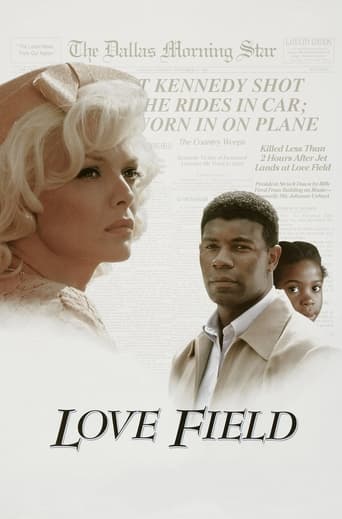
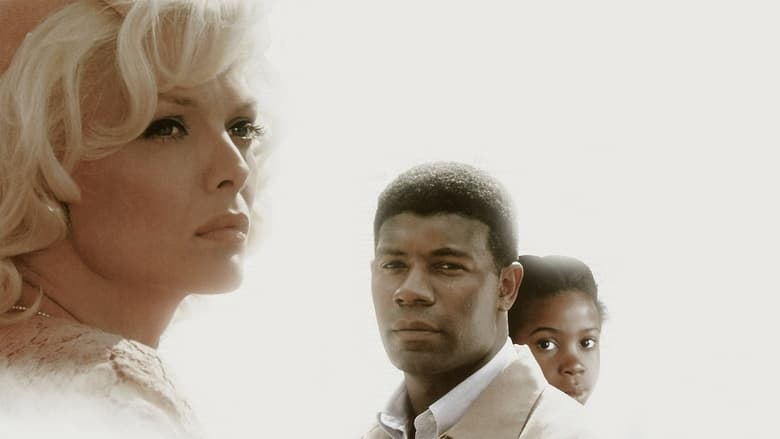
Love Field (1992)
 Watch Now
Watch Now








Dallas housewife Lurene Hallett's life revolves around the doings of Jacqueline Kennedy. She is devastated when President Kennedy is shot a few hours after she sees him arrive in Dallas. Despite her husband Ray's prohibition, she decides to attend the funeral in Washington, D.C. Forced to travel by bus, she befriends Jonell, the young black daughter of Paul Couter. Sensing something wrong, her good intentioned interference leads the mixed race threesome on an increasingly difficult journey to Washington with both the police and Ray looking for them.
Watch Trailer
Cast


Similar titles
Reviews
A lot more amusing than I thought it would be.
The thing I enjoyed most about the film is the fact that it doesn't shy away from being a super-sized-cliche;
Although I seem to have had higher expectations than I thought, the movie is super entertaining.
All of these films share one commonality, that being a kind of emotional center that humanizes a cast of monsters.
Love Field is an airport near Dallas, named after the pioneer aviator Moss Love. Its relevance to this film is that it was the airport into which President John F. Kennedy flew for the visit which was to end in his assassination. (This has not, however, prevented some people from giving the title a more literal interpretation; the German title, for instance, was "Feld der Liebe", or "Field of Love").The film is set in November 1963, around the time of the assassination. The main character is Lurene Hallett, a thirty-something Dallas beautician obsessed with the President and even more with his wife Jacqueline. (Jackiemania of this sort appears to have been a genuine phenomenon of the early sixties; it was satirised by the British humorist Michael Wharton ("Peter Simple") who wrote of "typical housewives' fan clubs" with names like the "Revisionist Anti-Our Jackie Onassis"). When she learns that the President has been assassinated she is determined to travel by bus to Washington to attend his funeral, without either the knowledge or approval of her husband Ray.During her journey, Lurene meets Paul Cater, a black fellow-passenger, travelling with a young girl named Jonell, who he claims is his daughter. She senses that something is wrong, jumps to the conclusion that Paul has kidnapped the child and raises the alarm. When she realises the truth- that Paul is indeed Jonell's father and that he has rescued her from an orphanage where she was being mistreated after the death of her unmarried mother- Lurene feels that she needs to make amends for her well-intentioned but ill-judged interference, and helps Paul to make a getaway. The two find themselves on a perilous road trip across several Southern states with the police in pursuit.This was the film which won Michelle Pfeiffer her third Academy Award nomination in four years (the others were for "Dangerous Liaisons" and "The Fabulous Baker Boys"), thus completing her successful transition from sex symbol to serious actress. Her Lurene at first seems a slightly ridiculous figure, and not merely because she has the sort of Christian name generally used by Hollywood scriptwriters as shorthand for "dumb blonde trailer trash". Her thick Texas drawl, her overdone makeup and her platinum blonde bouffant hairdo, the sort of big hair that screams "early sixties!" at you, all initially make it difficult to take her seriously. (Even by the end of the decade, this hairstyle had been forbidden by law on pain of extreme ridicule). Her obsession with the President and First Lady seems naïve and childish, an adult version of a teenage crush. Yet as the film progresses, we realise that she is not just a dumb blonde, but someone who has hidden reserves of kindness and decency, especially as she is no middle-class liberal, but comes from the class which, in the South, has always constituted the main reserve of racist bigotry.Films about racial prejudice are today commonplace, and even in the early nineties were not as daring or original as they would have been a few decades earlier. What was original about "Love Field" is the way in which it treats this theme. Lurene's deepening relationship with Paul is always going to cause both of them problems, given that they are travelling through rural areas where even a platonic friendship between a black man and a white woman will always be regarded with suspicion and anything deeper than that with outright hostility. When the couple realise that they are falling in love, they also realise that they have violated a fundamental taboo of their society. Indeed, this was a courageous theme even for 1992. Even ten years later when Dennis Haysbert, who plays Paul here, was to star in "Far from Heaven", another film with a similar theme, it was made clear that his character's relationship with Julianne Moore always remained non-sexual.Like "Frankie and Johnnie" in which Pfeiffer had starred the previous year, "Love Field" is essentially a romantic comedy, but one which contains a greater degree of psychological depth and insight than is usual in films of this type, at least in its portrayal of Lurene. Haysbert's Paul is perhaps the sort of standard stoical, dignified black man common in films with a race relations theme, but it is Michelle Pfeiffer's performance which keeps us watching. I should also mention Jerry Goldsmith's excellent piano score which enhances the appeal of this film. 7/10
In 1963 Dallas, a Jackie Kennedy-obsessed beautician hopes to travel by bus to JFK's funeral, but gets involved instead with a troubled black man and his estranged little girl. Handsome production, nice details, but a curiously minor film that never quite kicks into gear. Occasionally, the way the racial prejudices are shown--from both black and white characters--is heavy-handed, though director Jonathan Kaplan does subtle work as well, performing a nimble balancing act while the screenplay works overtime being "heated" and "emotional". Michelle Pfeiffer's performance is alternately grating, unconventional, sweet and perplexing; we don't get to know her Lurene too well, and the actress has to rely on shtick for some of her major scenes; Dennis Haysbert as her traveling companion is a tower of quiet strength, and his handsome, aw-shucks smile isn't over-used. The plot is wrapped up neatly at the end, a tricky feat since the finale takes place some 12 months from the rest of the story--a gimmick that doesn't always work, but here it satisfies the viewer by showing lives changed and what might lay ahead. Potentially a heady mix of race-relations and something even deeper (and no-less complicated): forbidden love. Yet the picture somehow whittles down these complex issues into a road-movie formula. ** from ****
My Stars, my "One line summary" sounds camp, but this picture was truly lovely and very moving for me.I had seen it years ago, as I am a fan of anything involving period re-creations, but seeing it again recently moved me way past the perfect 1963 backgrounds and the Melmac cups in the kitchen cupboards...This review may contain *spoilers*, so Viewer Beware.Michelle Pfieffer portrays a woman obsessed with the glamour of the Kennedy family, particularly Jackie, and is thrilled to catch a glimpse of her as the First Couple arrive at Dallas Love Field Airport on November 22 of '63. Circumstances (humorous ones, at that, in the form of fabulously annoying character actress Peggy Rea) don't allow for her brush with celebrity, and of course the assassination crushes her. Her husband is less than sympathetic as she explains her need to attend the funeral. She escapes anyway, and catches a bus to Washington. She meets up with a black man and his young daughter (Dennis Haysbert and Stephanie McFadden) and the journey becomes very complicated indeed. Intrigue and mystery cloud his initial introduction, however Pfieffer's character is concerned for him, especially for the daughter's welfare. Soon the trio are entwined, and stubborn ethics keep them from abandoning one another. This is when they are suddenly on their own, and the story takes off.Visually, the mixture is wonderful - the extremely "white" and VERY blonde Pfieffer, trying her hardest to look like Jackie even down to her home-made suits, and the curious "coloured man" and his silent, somewhat frightened daughter. Both actors are absolutely excellent as two individuals who become literal victims of their own time. There are the subtle vocal references to the child as "a coloured girl" by Pfieffer, who holds no prejudice but simply talks the way everyone else does; and then the stronger and much more "controversial" implications of the man and the woman and any kind of a relationship they may have, however shadowed by the mores of the early 60's, the confusion and upset the World is undergoing due to Kennedy's murder, and even the geographic locales they travel through.We are reminded that Pfieffer's character is still a married, albeit unhappily, woman of principle, and that the mere sight of an interracial couple in that time would cause near hysterics - still we WANT them to overcome it all, and the fact that the very human need for love has to be compromised by the times is communicated intensely yet with enough restraint that the characters do not suffer being imbued with too much "foresight." Stephanie McFadden as the 6-year-old daughter is incredible as well, her facial expressions saying so much more than the six or seven lines she speaks in the whole picture. Her poignant close ups drive the viewer to WILL her to understand, to see what is happening around her, comprehend it, see beyond it, but of course she cannot. Much of the story is this way, one wants to just clear away the limitations and the social ills and let them all BE. There are moments of tension (rednecks [they are even credited as such!] that pass the couple on the road and then come back to stir up trouble) balanced by those of palpable relief (a curious, inexpressive old woman and her retired husband, who take the three in for a night). This is sufficient to provide a realistic level of suspense, even angst, but it is the triumph of overcoming barriers, whether they are bad husbands who just don't know any better, or suspicious and bigoted backwoods policemen, that make for the emotions one experiences while watching.This picture left me wondering who and where these brilliant people are, the writer, Don Roos, and dual-producers Sarah Pillsbury and Midge Sanford, and particularly director Jonathan Kaplan. Why haven't we heard of these folks, and why wasn't this beautiful film hailed in 1992? Rarely, very rarely, have I seen a picture that left me wanting to personally congratulate the folks directly responsible for it!Needless to say, but important to emphasize, production values shine in all forms, as the film contains some spectacular period-recreations of downtown Dallas and other townships, even down to the store-front displays and seas of vintage vehicles buzzing around (Oliver Stone eat your heart out!), and the shockingly realistic Love Field Airport scenes, complete with the obligatory Pink Nubbly Suit on an incredible Jackie K. look-alike, are stunning. The interiors, the magazines in the racks, everything, is spot on; and the photography is breathtaking, as unpicturesque as a bus in the middle of Nowhere, Virginia, may seem to be.A splendid, highly recommended motion picture in ALL regards.Multiple stars. Much praise!
I love this movie. Michelle is so great in it. I wish they could have elaborated more on the relationship between Lurene and Mr. Cater near the end of the movie. It kinda leaves you hanging. Otherwise, it was a great movie.


